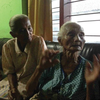Verkrachting tijdens de Indonesische en Algerijnse onafhankelijkheidsoorlogen. Motieven, contexten en politiek
DOI:
https://doi.org/10.18352/bmgn-lchr.10818Abstract
The vast theoretical literature on why soldiers rape in wartime stands in contrast to the scarce, fragmented and scattered accounts about rape that one can find in court cases, fleeting references in soldiers’ diaries and hesitantly spoken testimonies of victims. This contrast calls for us to pay closer attention to why we know what we do, and why so many blind spots persist: what can this tell us about the dynamics and politicisation of rape in wartime? This article begins to answer these questions through a comparison of rape committed by European militaries during the Indonesian War of Independence (1945-1949) and the Algerian War of Independence (1954-1962). In both conflicts, sources suggest that the rape of colonised women by Dutch and French troops was widespread. This observation stands in stark contrast to the limited number of court cases or to the rare occasions in which victims were heard. In Indonesia there appear to have been proportionally more prosecutions, whilst in Algeria the rape of Algerian women by French militaries was much more publicised.
Er bestaat een omvangrijke theoretische literatuur over de motieven van militairen om vrouwen tijdens gewapende conflicten te verkrachten. Getuigenissen over verkrachting zijn echter schaars. We vinden fragmenten terug in krijgsraadrechtszaken, in terloopse verwijzingen in dagboeken van militairen, of in aarzelend uitgesproken herinneringen tijdens interviews met slachtoffers. Om deze tegenstelling te verklaren is het van belang stil te staan bij de vragen waarom wij weten wat we weten, en waarom er nog steeds zoveel blinde vlekken zijn. Wat vertelt een reflectie op het bronnenmateriaal ons over de oorzaken voor en de politieke instrumentalisering van verkrachting in een gewapend conflict? In dit artikel wordt gepoogd deze vragen te beantwoorden door de rol van verkrachting gepleegd door Nederlandse troepen tijdens de Indonesische Onafhankelijkheidsoorlog (1945-1949) te vergelijken met het voorkomen van verkrachting door Franse troepen tijdens de Algerijnse Onafhankelijkheidsoorlog (1954-1962). De bronnen suggereren dat de verkrachting van lokale vrouwen in beide conflicten veelvuldig voorkwam. Deze observatie staat in schril contrast met de zeldzame keren dat een verkrachting daadwerkelijk tot een rechtszaak leidde of tot de zeer beperkte mate waarin slachtoffers gehoord werden. Hoewel er in Indonesië verhoudingsgewijs meer zaken vervolgd lijken te zijn dan in Algerije, is aan de verkrachting van Algerijnse vrouwen veel meer ruchtbaarheid gegeven.
Downloads

Downloads
Published
Issue
Section
License
Authors who publish with this journal agree to the following terms:
a) Authors retain copyright and grant the journal right of first publication with the work simultaneously licensed under a Creative Commons Attribution 4.0 International (CC BY 4.0) that allows others to share the work with an acknowledgement of the work's authorship and initial publication in this journal.
b) Authors are able to enter into separate, additional contractual arrangements for the non-exclusive distribution of the journal's published version of the work (e.g., post it to an institutional repository or publish it in a book), with an acknowledgement of its initial publication in this journal.
c) Authors are permitted to post their work online (e.g., in institutional repositories or on their website) prior to and during the submission process.
Authors are explicitly encouraged to deposit their published article in their institutional repository.








